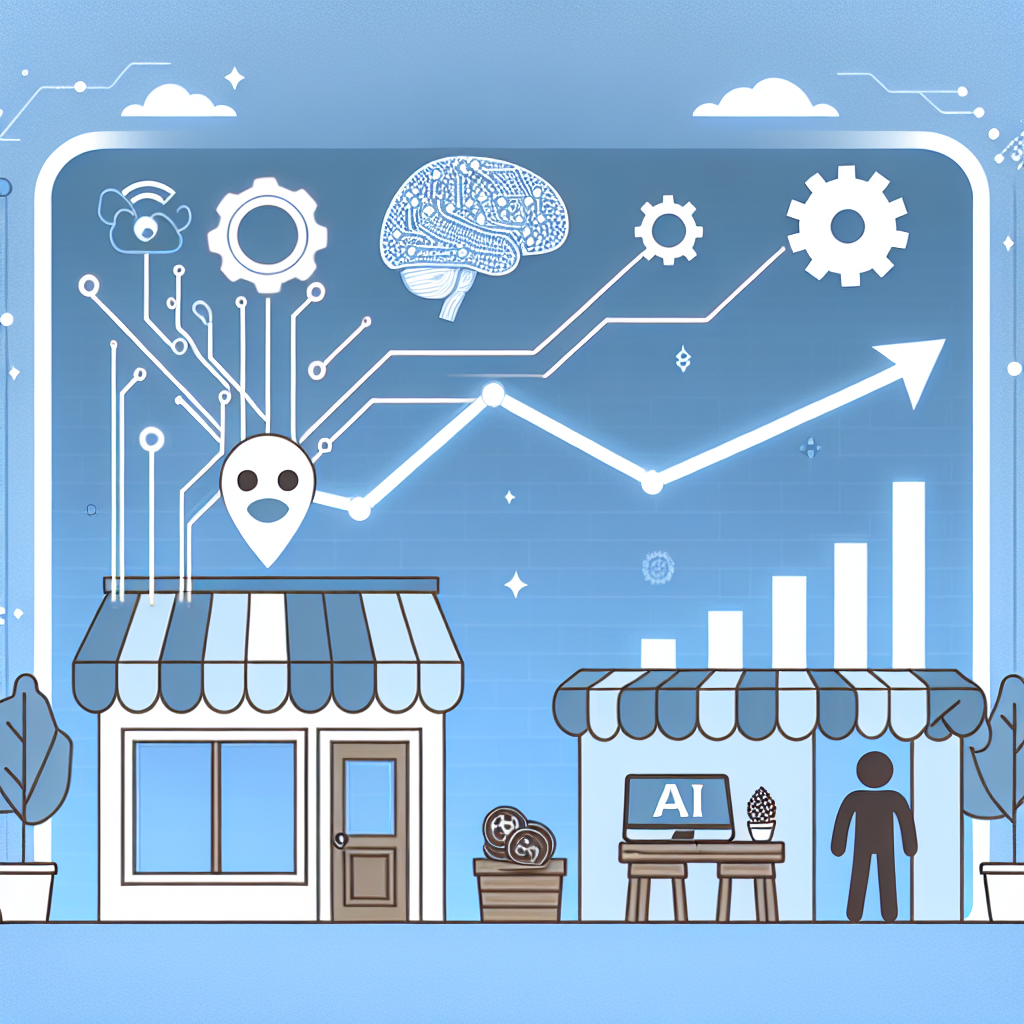Artificial Intelligence (AI) has been a game-changer for businesses of all sizes, but small businesses in particular can greatly benefit from integrating AI into their operations. From improving efficiency to enhancing customer experiences, AI offers a wide range of advantages for small businesses that can help them stay competitive in today’s fast-paced market. In this article, we will explore the benefits of AI integration for small businesses and how it can help them thrive in the digital age.
1. Improved Efficiency
One of the key benefits of AI integration for small businesses is improved efficiency. AI-powered tools and systems can automate time-consuming tasks, such as data entry, customer support, and inventory management, freeing up valuable time for employees to focus on more strategic activities. This not only helps small businesses save time and money, but also allows them to operate more efficiently and effectively.
For example, AI-powered chatbots can handle customer inquiries and provide instant support, reducing the need for human intervention and improving response times. Similarly, AI algorithms can analyze large amounts of data in real time to identify trends and patterns, helping small businesses make more informed decisions and streamline their operations.
2. Enhanced Customer Experiences
AI integration can also help small businesses enhance customer experiences by providing personalized and targeted services. AI-powered tools can analyze customer data to create personalized recommendations, promotions, and offers based on individual preferences and behaviors. This can help small businesses build stronger relationships with their customers and increase customer satisfaction and loyalty.
For instance, AI algorithms can analyze customer interactions and feedback to identify common issues and trends, allowing small businesses to address customer concerns proactively and improve their products or services. AI can also be used to analyze customer sentiment and feedback on social media platforms, helping small businesses understand customer preferences and adapt their marketing strategies accordingly.
3. Increased Sales and Revenue
AI integration can also help small businesses increase sales and revenue by optimizing marketing campaigns, improving conversion rates, and identifying new business opportunities. AI-powered tools can analyze customer data to identify high-value leads, target them with personalized offers, and track their engagement and conversion rates. This can help small businesses generate more leads, convert them into customers, and increase their sales and revenue.
Furthermore, AI can help small businesses identify new market trends, customer preferences, and business opportunities by analyzing data from various sources, such as social media, online reviews, and industry reports. This can help small businesses stay ahead of the competition and adapt their strategies to meet changing market demands.
4. Cost Savings
AI integration can also help small businesses reduce costs by automating repetitive tasks, improving resource allocation, and optimizing business processes. AI-powered tools can streamline workflows, eliminate manual errors, and reduce the need for human intervention, saving small businesses time and money in the long run.
For example, AI algorithms can analyze historical data to predict future trends and demand, helping small businesses optimize their inventory management and reduce excess inventory costs. AI-powered systems can also automate routine tasks, such as scheduling, billing, and payroll processing, reducing the need for manual intervention and minimizing human errors.
5. Competitive Advantage
Finally, AI integration can provide small businesses with a competitive advantage by enabling them to leverage cutting-edge technology and stay ahead of the curve. Small businesses that integrate AI into their operations can differentiate themselves from competitors, attract new customers, and expand their market reach.
AI-powered tools can help small businesses automate tasks, improve decision-making, and enhance customer experiences, giving them a competitive edge in the market. By embracing AI technology, small businesses can position themselves as innovative and forward-thinking organizations that are committed to delivering high-quality products and services to their customers.
In conclusion, the benefits of AI integration for small businesses are numerous and far-reaching. From improved efficiency and enhanced customer experiences to increased sales and revenue, AI can help small businesses thrive in today’s digital age. By embracing AI technology and integrating it into their operations, small businesses can stay competitive, reduce costs, and drive growth and innovation. As AI continues to evolve and become more accessible, small businesses that invest in AI integration will be well-positioned to succeed in the future.
FAQs
Q: What are some common AI-powered tools that small businesses can integrate into their operations?
A: Some common AI-powered tools that small businesses can integrate into their operations include chatbots, CRM systems, marketing automation platforms, and predictive analytics tools.
Q: How can AI help small businesses improve customer experiences?
A: AI can help small businesses improve customer experiences by providing personalized recommendations, targeted promotions, and instant support through chatbots. AI can also analyze customer data to identify trends and preferences, allowing small businesses to deliver more relevant and engaging services to their customers.
Q: How can small businesses leverage AI to increase sales and revenue?
A: Small businesses can leverage AI to increase sales and revenue by optimizing marketing campaigns, improving conversion rates, and identifying new business opportunities. AI-powered tools can help small businesses generate more leads, convert them into customers, and increase their sales and revenue.
Q: What are some key considerations for small businesses looking to integrate AI into their operations?
A: Some key considerations for small businesses looking to integrate AI into their operations include identifying their specific needs and goals, selecting the right AI tools and technologies, training employees on how to use AI effectively, and monitoring and evaluating the impact of AI on their business performance.

